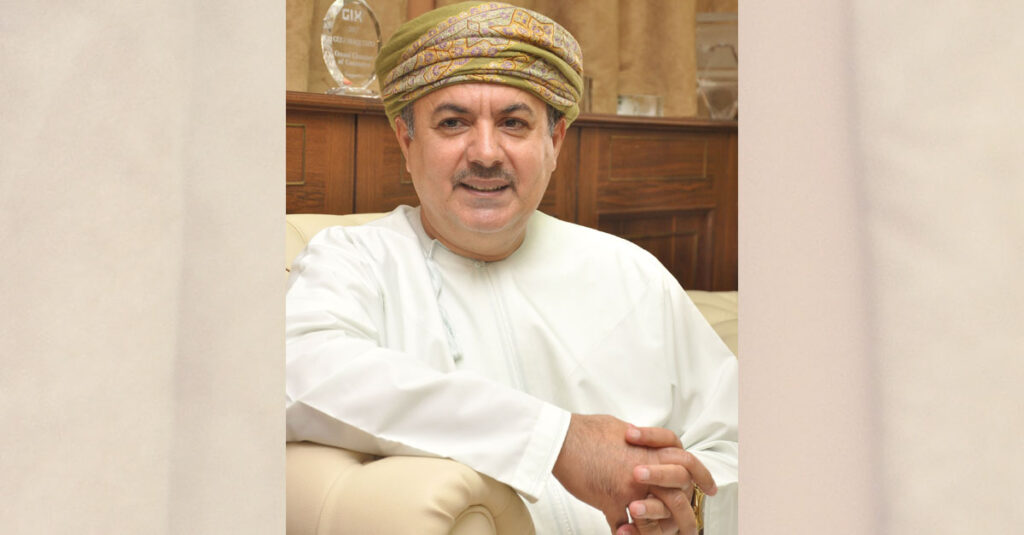By Khalil bin Abdullah Al Khonji

As the dates for Oman Chamber of Commerce and Industry (OCCI) elections to its Board of Directors for its next (2022-2026) session nears, the candidates, the electors, businessmen and women alike are keen to understand what would be the newly elected president’s top priorities.
The OCCI is considered to be one of the most modern and productive chamber in the whole of the Gulf and Arab region and it has been in existence for over 50 years. And, thereby the OCCI requires it to be led by a dynamic business leadership with improved efficiency operating within an integrated institutional framework, as per the Oman 2040 vision’s goals. Thus, the private sector will be keenly hoping that the elected members would meet all of the necessary requirements to take the chamber to further heights and meet its desired goals.
Right time to increase presence
And, from our point of view, this is the right time for the chamber to increase its presence in all forums (including national, Gulf, Arab, regional, and international) by reorganising its internal systems. This will help make an honest interface to the level attained by the Sultanate through the years of development and renaissance and upgrading its standards in accordance with the objectives of the renewed renaissance led by His Majesty Sultan Haitham bin Tarik.
12 key points to consider
Therefore, the next president of the OCCI and the head of the Federation of Gulf Cooperation Council Chambers for the upcoming (2023-2025) session must set the following as priorities:
First: To empower the elected heads of the OCCI branches for the session (2022 to 2026) by mandating each branch as a representative for the presidency of the chamber in national forums and becoming a true partner of the governors in enhancing the role of the 10 governorates in economic progress. Furthermore, they should take executive steps to achieve Oman’s 2040 vision’s goals. In addition, the president has to reactivate the chamber’s programmes and initiatives, including the Najah (success) programme for higher education, and expand its activities in partnership with private institutions. Likewise, the chamber’s department must provide excellent services to different segments of its subsidiaries, especially entrepreneurs.
Second: To reinvigorate female entrepreneur forums and establish platforms for entrepreneurs to promote the value of entrepreneurship at the national level, as well as to come up with applicable solutions with those concerned with the production parties, especially the authorities concerned with facilitating and simplifying the business procedures of these institutions.
Third: To reinstate the annual conference between businessmen and women and the honourable Council of Ministers to enable direct interaction between the private sector and the government with the purpose of sustaining the partner channel and conveying the message of the chamber to the government members to attain the intended objectives at the national level.
Fourth: To encourage the private sector to engage more in-public interest initiatives; paying attention to corporate social responsibility (CSR) in accordance with the Oman 2040 vision, as well as reactivating the chamber’s programmes and initiatives and doubling its activities.
Fifth: To expand the sectoral committees’ purview of work, in light of their significance in activating the chamber’s activity in Muscat and other governorates, in order to concentrate on the priorities of employment-generating sectors, in particular for national labour. Moreover, to expand the opportunities for the Omani workforce to work in private sector enterprises by opening up new areas in cooperation with the authorities concerned with economic revitalisation.
Sixth: To create new projects in different areas (such as industrial, commercial, agricultural, educational, and tourism) in all governorates in partnership with private enterprises based on the economic feasibility of each sector in each governorate in collaboration with the heads of the chamber’s branches.
Seventh: To facilitate and streamline the procedures that promote the trade openness of Oman and its partners from fraternal countries, and eliminate the challenges encountered by the sector with the concerned authorities.
Eighth: To activate partnerships with countries having free-trade agreements and making the best possible use of those accords by encouraging national companies to export their goods, therefore attracting new alliances from the other side of Oman.
Ninth: To push the Commercial Arbitration Center in Oman so that it becomes one of the significant arbitration centers in the Gulf Cooperation Council countries to resolve commercial issues domestically and not through external arbitration centers.
Tenth: To work diligently to draft a new law for the chamber, benefiting from the experience of previous sessions over the past 50 years. Let businessmen and women celebrate the chamber’s 50th anniversary as it gains its complete independence and be reconsidered as an independent public institution of public interest, in accordance with the articles of incorporation and the subsequent amendments to the chamber’s law.
Eleventh: To coordinate, collaborate and engage in the exchange of expertise and viewpoints with business councils, friendship associations, chambers of commerce federations, and international organisations and to additionally support Omani economic diplomacy in attaining the intended objectives.
Twelfth: To positively forecast the future, and by utilising innovation and investing in it to provide products that boost the competitiveness of the private sector in the commercial, industrial, and service sectors by working with a follow-up unit to the Oman 2040 vision.
ConclusionIn conclusion, it is necessary to emphasise that the OCCI is a part of the International Chamber of Commerce, a member of the Islamic Chamber of Commerce and Industry, the General Union of Arab Chambers of Commerce, Industry, and Agriculture, as well as the Federation of the GCC Chambers.
The chamber has a unique way of dealing with the three production parties (the government, entrepreneurs, and union of workers of Oman) and it must maintain its consistent approach that believes in partnership for a genuine goal, which is joint cooperation to achieve sustainable and long-term growth that contributes to economic and social stability and the spread of peace, love, stability and empathy at the international level.
(The author is a former president of the OCCI.)

0 Comments